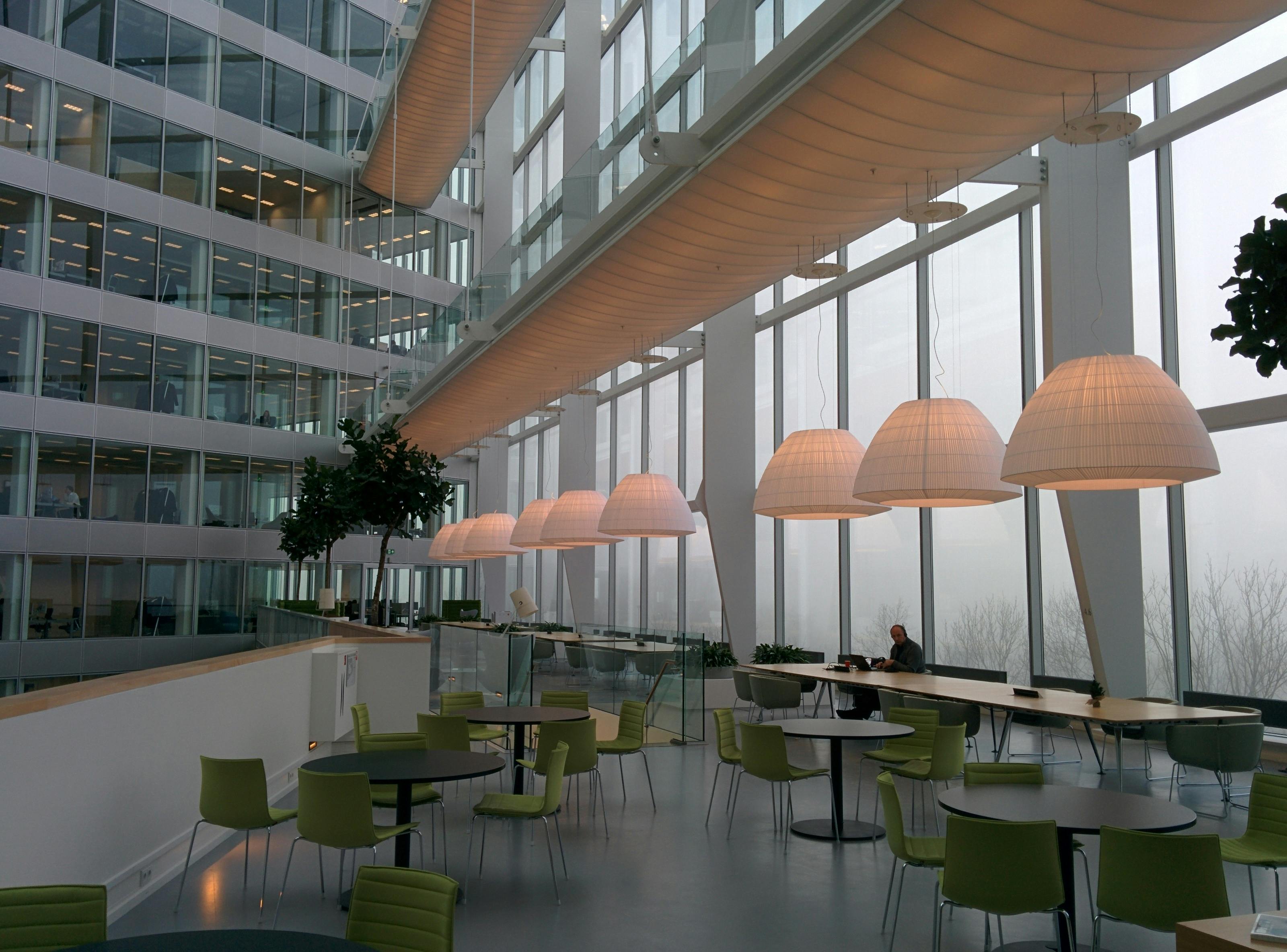
While remote work continues to gain popularity, the good ol’ office remains essential to the operations and success of many businesses. Physical office space enhances creativity and innovation, as brainstorming and problem-solving are often more effective with in-person interaction compared to virtual meetings.
An office can serve as a hub for essential work resources (such as specialized equipment and secure networks) that employees may not have access to at home. Some employees prefer checking in at the office occasionally to maintain clear boundaries between work and personal life. Additionally, physical office space can enhance a company’s image and professionalism, serving as a venue for hosting clients and conducting business meetings.
Having an office space is just one-half of the equation. The true challenge for business owners lies in optimizing their office space to boost operational efficiency. A well-functioning office space can enhance employee morale and, consequently, productivity.
In the following paragraphs, we discuss strategies entrepreneurs can use to keep their office space operating smoothly. Here they are:
Optimize Office Layout
The layout of an office has a significant impact on productivity and costs. When an office is designed to allow work and foot traffic to flow easily, collaboration becomes more effective. Modern office layouts typically include both open and quiet zones.
Open zones are designed to facilitate collaboration and teamwork. They often feature shared desks and common areas that enhance interaction among employees. Quiet zones, on the other hand, are intended for individual work that requires concentration and minimal distractions. Entrepreneurs usually designate private offices and quiet rooms as quiet zones. Having a mix of open and quiet zones allows employees to select the ideal environment for a particular task, enabling them to work more fluidly and efficiently.
An efficient office layout can save costs by reducing the need for additional square footage. Since office space leases are charged per square foot, maximizing available space through a thoughtful layout can lead to significant savings.
Prioritize Cleanliness and Maintenance
A clean office is a productive office. Dirt and clutter can negatively impact the physical and mental health of employees. Physically, a dirty office can cause illness and increase the number of employees’ sick days. A messy, cluttered environment can create stress and anxiety, interfering with the ability to focus and diminishing employee productivity levels. Additionally, a clean office is essential for creating a positive impression on visitors, clients, and customers.
According to Compass Cleaning Solutions: “Business owners should prioritize cleanliness by implementing a structured cleaning plan. Daily cleaning of common areas and high-touch surfaces, coupled with weekly deep cleaning, can maintain a healthy work environment.
For tasks that require more expertise or thoroughness, such as monthly deep cleans or carpet cleaning, hiring professional services is advisable. Professionals ensure a higher standard of cleanliness, which can significantly boost productivity and employee well-being.”
Quality Office Equipment
Employers have a crucial role to play in helping employees excel in their roles. Workers need to be equipped with the right materials to deliver good results, and a good place to start is by investing in ergonomic furniture designed for comfort and proper posture support. High-speed printers, scanners, high-performance computers, and efficient storage solutions will also improve efficiency and effectiveness in the workplace.
While there are basic pieces of equipment that should be in every office, available budget and operational needs will determine what business owners should prioritize. Ultimately, the aim is to ensure workers can go about their tasks efficiently and in a timely manner.
Manage Energy Efficiency
Energy efficiency has been a topic of interest to business owners for some time due to its potential benefits. A decrease in energy consumption can significantly lower operating costs, which alone is a strong incentive for many enterprises to consider energy-efficient technologies and practices.
Sustainability is an integral part of modern companies’ corporate social responsibility (CSR) initiatives. Job seekers are also increasingly prioritizing employers with strong CSR initiatives, and being known to support sustainability can enhance recruitment efforts.
Entrepreneurs should encourage workers to switch off equipment when not in use and invest in energy-efficient lighting and HVAC systems. By focusing on energy efficiency, business owners can create a more effective, comfortable, and sustainable workspace that benefits both the organization and its employees.
Create Break Areas
Organizations that want workers to deliver excellent results consistently will need to prioritize their well-being. While there are several ways to look after employees’ well-being, a simple way to achieve this in the office is to encourage them to take breaks.
Breaks can prevent burnout and renew energy and focus. Designated break areas provide employees with a space to relax and recharge. For entrepreneurs without dedicated break areas, allowing employees to leave their workstations for a few minutes to stretch, take a short walk, or have some snacks can significantly boost morale and productivity. Encouraging such practices demonstrates a commitment to employee well-being and can lead to better performance and job satisfaction.